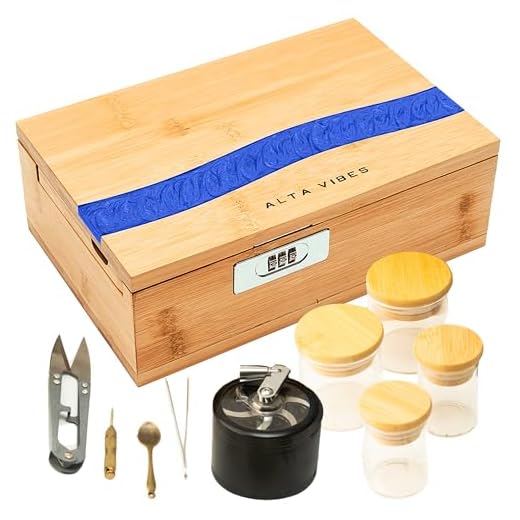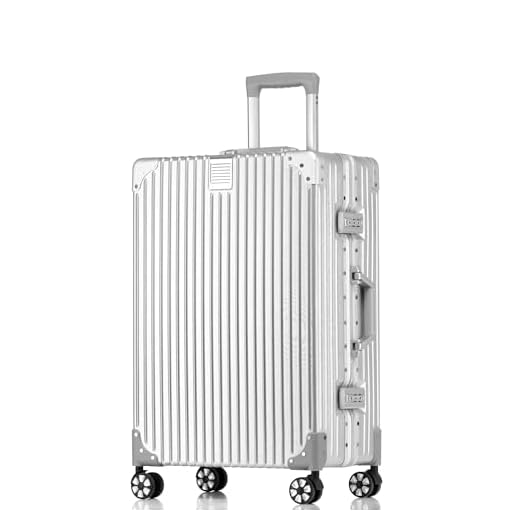



Transporting cannabis concentrates via checked baggage is generally prohibited by airline regulations and federal law. It is advisable to avoid packing these products in checked bags to prevent potential legal issues and complications during travel.
Different jurisdictions have distinct laws regarding cannabis products. While some states allow the use and possession of these substances, federal regulations still classify them as illegal. Always research and understand the laws of both the departure and arrival locations before attempting to carry any cannabis-related items.
Passengers should consider alternatives, such as using products that are compliant with local laws or opting for legal alternatives to cannabis concentrates for travel. Staying informed and cautious is key to ensuring a smooth travel experience without unnecessary risks.
Transporting THC Extract in Airport Cargo
It is generally recommended to keep cannabis-derived substances out of airport cargo areas due to legal restrictions in many regions. If traveling across state lines or to locations with strict regulations, it’s crucial to research local laws applicable at both your departure and arrival points.
Here are key points to consider:
- Many airlines adhere to federal laws, which classify cannabis products as illegal, irrespective of state laws.
- Possession may lead to confiscation, fines, or potential legal issues, especially in states where regulations are stringent.
- Designate personal use amounts that align with local regulations to minimize risks.
For essentials during travel, look for reliable options among the best luggage brands flight attendants recommend, ensuring your belongings remain secure and compliant throughout your journey.
Understanding TSA Regulations for THC Oil
Transporting cannabis-derived substances in any form raises specific legal challenges. According to TSA guidelines, products containing THC are prohibited, regardless of state laws permitting use. This remains true even in states where such products are legal for medicinal or recreational purposes.
Legal Implications
Federal law categorizes THC as a Schedule I substance, meaning it is illegal to possess, distribute, or transport across state lines. Therefore, individuals should consider the destination’s local laws and regulations before attempting to carry these items through an airport.
Safe Practices
For travelers seeking to transport hemp-derived products containing less than 0.3% THC, confirm that these items comply with the 2018 Farm Bill. Although specific regulations vary by state and airport, packaging should clearly indicate the THC content to minimize complications during security checks. Always research airport-specific rules prior to travel to avoid potential legal issues.
State Laws Impacting THC Oil Transportation
Transporting cannabis extracts varies significantly across states. Verify local statutes before any travel involving these substances. Some jurisdictions may permit personal use while others strictly prohibit possession.
State-by-State Regulations
The following table outlines regulations in select states regarding the transportation of cannabis extracts:
| State | Legal Status | Possession Limits | Notes |
|---|---|---|---|
| California | Legal for adults | Up to 1 ounce of cannabis, 8 grams of concentrate | Must be transported securely |
| Texas | Limited legality (medical use only) | Up to 0.5 ounces of low-THC cannabis | No commercial transportation |
| Florida | Legal for medical use | Varies with prescription | Non-medical use is prohibited |
| New York | Legal for adults | Up to 3 ounces of cannabis, 24 grams of concentrate | Local regulations may apply |
| Colorado | Legal for adults | Up to 1 ounce of cannabis, no limit on concentrates for personal use | Secure transport required |
Considerations During Travel
Travelers must remain aware of the laws in both origin and destination states. Legal discrepancies can lead to serious legal ramifications. Additionally, transportation methods–whether by air or road–also influence legality based on varying federal and state laws.
Risks of Traveling with THC Oil
Transporting cannabis extracts poses significant legal and logistical challenges. Various jurisdictions have distinct laws regarding possession. Risk of legal repercussions is high in regions where such substances remain prohibited, leading to potential fines, confiscation, or arrest.
Encounters with law enforcement can result in stressful scenarios. It’s crucial to know that even in states where cannabis is legal, crossing state lines may still violate federal regulations. Being unaware of local laws could bolster encounters that disrupt travel plans.
Surveillance systems at airports are equipped to detect prohibited items. Products resembling cannabis oils could draw unwanted attention. If detected, these substances may result in intensive questioning and delays.
Seizure of goods is not merely a possibility but a frequent outcome. If authorities discover cannabis products, they will likely be confiscated, leading to financial loss and inconvenience.
Health considerations must also be taken into account. Reliable sources and storage conditions are critical. Variability in product quality may expose travelers to ineffective or unsafe substances, complicating usage during travel.
Having an alternative plan is advisable. Researching local dispensaries at your destination might provide legal access to similar products, easing the stress associated with transporting cannabis extracts.
Options for Alternative Travel Methods
Consider using alternative transportation methods such as driving or train travel. These options allow for more flexibility regarding personal items without the restrictions imposed by air travel regulations. Road trips grant the convenience of packing necessary items while remaining within the legal framework of the states traversed. Ensure that local laws and any specific regulations regarding cannabis products are researched beforehand.
Train services present another viable option, often permitting passengers to bring personal items with fewer hassles. Certain train lines may have specific policies regarding cannabis products; thus, understanding these beforehand can prevent potential issues during the journey.
Traveling via bus may also be a cost-effective choice. Like with trains, it’s important to familiarize oneself with the policy of the specific bus line. Always ensure that products conform to state regulations along the route. Utilizing buses minimizes concerns tied to air travel, allowing passengers to carry personal items more freely.
If traveling internationally, consider destinations where laws are more lenient regarding cannabis usage. This method reduces the complexities associated with cross-border transportation of cannabis-related products.
Regardless of the chosen mode of transport, always stay informed about the legal landscape and personal rights in each jurisdiction. For guiding resources on specific legal matters, such as custody themes relevant to parental travel, visit how can a father win custody.
Tips for Safely Packing THC Products in Luggage

Always choose a discreet and secure container. Opt for a childproof bottle or a sealed, opaque bag to prevent accidental leaks and minimize visibility during inspections.
Consider packing products in the center of your bag, surrounded by clothing or soft items, which can provide extra cushioning and risk mitigation in case of accidental spillage. Ensure the lid is tightly sealed and check for any possible leaks before packing.
Check Local Laws
Research state regulations regarding cannabis-derived substances at your destination. Each jurisdiction may have unique rules governing possession and transport; non-compliance could lead to legal complications.
Bring Documentation

Keep any relevant documents accessible. If prescriptions or legal documentation exist, have copies ready, which might facilitate discussions with authorities if needed.
FAQ:
Can I take THC oil in my checked luggage when traveling?
The ability to take THC oil in checked luggage depends on the laws of both the departure and arrival locations. In some countries or states where cannabis is legal, you may be allowed to carry THC oil for personal use. However, if you are traveling to or from places where cannabis is illegal, it could lead to legal issues. Always check local regulations and airline policies before you travel.
What are the risks of bringing THC oil in checked luggage?
When you bring THC oil in checked luggage, you risk encountering several issues. Firstly, if your flight is to a destination where THC is illegal, you may face legal repercussions. Even if you’re flying from a legal state, if your luggage is searched and the oil is discovered, you could face penalties. Furthermore, airlines may have their own rules about carrying substances like THC oil. It’s crucial to be informed about potential legal and logistical problems before deciding to travel with THC oil.
Are there any specific TSA regulations regarding THC oil in checked baggage?
According to TSA regulations, cannabis and cannabis-infused products, including THC oil, are not permitted in either carry-on or checked luggage. Even states where cannabis is legal follow federal laws, which classify THC as a prohibited substance. Therefore, it’s essential to consider alternative options or consult TSA and local regulations before attempting to travel with THC oil.
What should I do if I need to travel with THC oil for medical reasons?
If you need to travel with THC oil for medical purposes, the best approach is to research the laws in both your departure and arrival locations thoroughly. In some cases, you may be able to bring medical documentation to support your need for the oil. Additionally, consider alternative methods such as shipping your products to your destination via a legal courier service in compliance with local laws, ensuring you have the necessary paperwork.
What are alternatives to THC oil for travelers?
If you’re looking for alternatives to THC oil while traveling, consider CBD oil or hemp-derived products, which are generally legal in more places. Always verify the legality of these substances in your destination. Non-intoxicating options like herbal supplements or over-the-counter medications might also serve your needs without the legality concerns associated with THC. Always consult a healthcare professional before making changes to your regimen.







